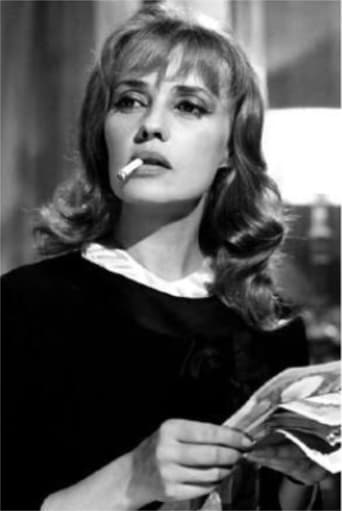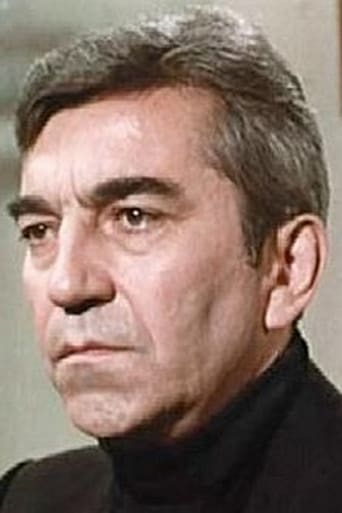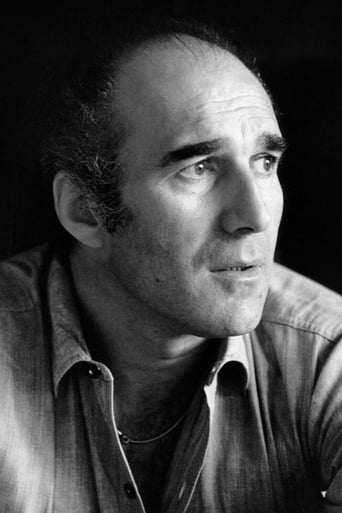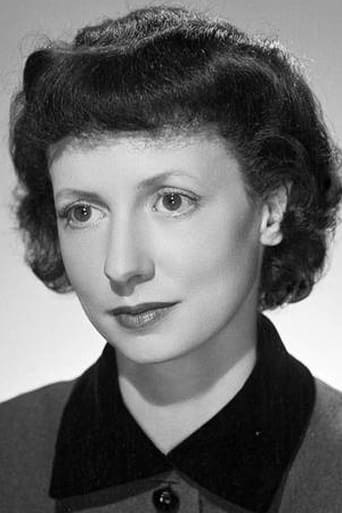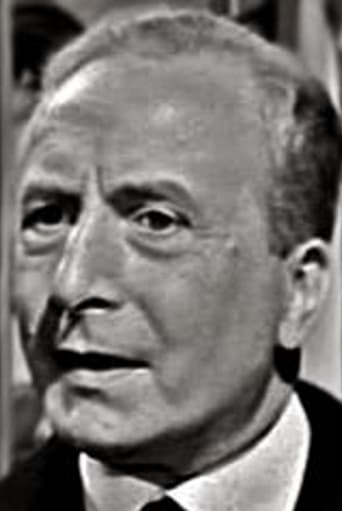Claysaba
Excellent, Without a doubt!!
Erica Derrick
By the time the dramatic fireworks start popping off, each one feels earned.
Jenni Devyn
Worth seeing just to witness how winsome it is.
Armand
each of his films remains a manifesto. about reality roots, about truth and signs of masks. in this case the story is different only for the precise performance of Jeanne Moreau as voice of the viewer, judge and subtle mistress of an obscure universe. and her art is enough for create more than perfect picture of a soulless circle but for suggest the instruments for transform it. a film in which classic Bunuel ingredients are at perfect place. in which cruel irony and art to give measure of each character is subtle and seductive. iconoclast exercise, it is only a form of testimony. and each actor is useful instrument for give force and nuances to a so common story .
JasparLamarCrabb
Luis Buñuel's stunning film stars Jeanne Moreau & Georges Géret in a clever battle of wills. Moreau is the new chambermaid of an estate lorded over by a kinky aristocrat (with a shoe fetish) and his remarkably uptight (and very materialistic) daughter, played to the hilt by Françoise Lugagne. The daughter's husband (Michel Piccoli) is a wannabe Casanova who's impregnated some of the past help. Added to the mix is political radical Géret, who may or may not be a child killer. Buñuel really peels back a rotten onion here, with the sexy and free-spirited Moreau slowly realizing that she's in a madhouse. The director has seldom been so straightforward in his indictments. Here he takes aim at the bourgeoisie, the French government, and of course religion (one of the townspeople is quick to finger a couple of monks as murder suspects). It's a scathing film but also filled with many comic touches: Moreau's show of boredom at her at employer's fetish; the constant battle between Piccoli and blustery neighbor Daniel Ivernel; Lugagne's hen pecking nagging of Moreau NOT to break anything. It's superbly acted by all, with Moreau giving what is really an Oscar worthy performance. In addition to the great work by Laugagne, Géret is perfect as the radical/bully and Piccoli adds a lot playing against type as a real nitwit. The film's co-writer Jean-Claude Carrière plays a befuddled priest.
christopher-underwood
This wonderful film seems deceptively simple at first, as Jeanne Moreau plays an attractive maid, coming from Paris to work for an eccentric family in the country, and begins to interact with the various family members and other servants. The wife is meticulous, fussy and unwilling to partake of sex with her husband, who in turn makes advances elsewhere, as and when he can. The senior member of the family is a curious old thing who asks the chambermaid up to read to him but then gradually reveals that his real passion is foot fetish. Bunuel has said this is his most erotic film and as there is no sex, we can safely assume he shared the same passion. The walk around the bedroom in leather boots with skirt raised certainly comes from somewhere fairly intense. Then, there is the gamekeeper, a knowing, wily chap who hates foreigners, is anti-Semitic and represents the coming fascism, which is made brutally clear at the end, whether or not he is guilty of the terrible crime at the centre of the film. I think you could safely say that Bunuel was more than a little unhappy with the French nation at this point, poking at all classes and the judiciary and government, but so beautifully done you might not even notice.
José Luis Rivera Mendoza (jluis1984)
Luis Buñuel, the man considered Spain's finest filmmaker and revered master of surrealism by both critics and film historians, made a surprising change of style in the first of the series of masterpiece she did in France during his last years. Taking out his usual surrealist set-pieces, he adapts Octave Mirbeau's revered novel about social classes in a very straight-forward fashion. However, this does not mean the movie is bad as many may believe; quite the opposite, "Le Journal d'eune Femme de Chambre" is a perfect showcase of Buñuel's finest film-making style, ambiguous and stylish, like the master's own vision of life.The plot follows Celestine (Jeanne Moreau), an urban young woman moving to country in 30s France to work as a chambermaid for the Monteils, a rich family with a few dark secrets. As soon as she arrives, problems start as she tries to adapt to her new life with the bizarre Monteils. Between the constant advances of sexually insatiable Monsieur Monteil (Michel Piccoli), the always vigilant eye of his materialist wife (Françoise Lugagne) and the shoe fetish of old Monsieur Rabour (Jean Ozenne); Celestine makes her way through this collection of living portraits of the most bizarre human nature.With a plot like this it would easy to believe this is a movie where the high class is demonized and the poor sanctified, but this is not the case here. Buñuel makes sure to have an ambiguity in every character, even in Celestine herself. There is no black and white, just different shades of gray, in a way similar to the beautiful black & white photography he uses here.The photography is essential in this film; not only for aesthetic purposes, it represents the dark decadent days of 30s Europe, and the pessimism latent in both rich and poor people. As I wrote above, the shades of gray match perfectly the ambiguity of a group of characters with as many virtues as flaws. Buñuel and his cast manage to create believable and realistic characters.Jeanne Moreau gives a brilliant performance as Celestine. As the beautiful young city woman highly intelligent and not without aspirations, her character has enough room to let her shine, and she really makes the most of it. Equally brilliant is Georges Géret as Joseph, the tough gardener with fascist ideals that has a secret agenda. The rest of the cast is also very good and together with the witty script complete a superb character-driven movie.Buñuel's masterful direction creates a film that, while completely focused on the characters, is still filled with his usual symbolism. The edition and the camera-work are superb and way the camera seems to flow inside the house gives the film a voyeuristic feeling. No wonder why Buñuel consider it a very erotic film.While many people consider this movie as one of his "lesser works", I consider it to be quite underrated, as it proved that Buñuel was a master not only of surrealism, but of film-making in general. 9/10

